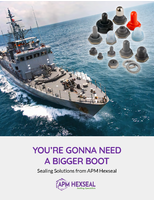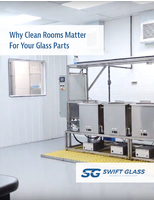Software helps comply with European eCustoms procedures.
Share:
Press Release Summary:
Addressing requirement to comply with European Commission's eCustoms Initiative for export clearance, specifically Automated Export System, SAP software for AES is available as stand-alone product and as part of SAP GRC Global Trade Services application. ATLAS-certified program provides centralized system to manage all customs processes for companies exporting goods. It replaces paper-based and non-integrated electronic processes and supports operational efficiency.
Original Press Release:
SAP Introduces New Stand-Alone Application to Help Companies Rapidly Comply With European eCustoms Procedures
HANOVER, Germany, March 15 /- Continuing to extend its market leadership in governance, risk and compliance (GRC) and global trade management applications, SAP AG (NYSE:SAP) today introduced new software in its portfolio of SAP(R) solutions for GRC to help companies comply with electronic customs procedures in Europe. The new software facilitates electronic communication with modernized customs systems being implemented in all European Union member states, as mandated under the European Commission's eCustoms Initiative. Addressing companies' requirement to comply with the European Commission's eCustoms Initiative for export clearance, specifically the Automated Export System (AES), SAP software for AES will be available both as a stand-alone product to new and existing SAP customers and also as part of the SAP GRC Global Trade Services application. Companies will be able to implement the new functionality quickly and without major interruption to their existing business processes and IT systems. The announcement was made at the CeBIT trade fair, being held in Hanover, Germany, March 15 - 21.
SAP software for automated export systems complements SAP's existing portfolio of solutions, which help companies mitigate the risk of non- compliance, drive operational efficiency and business performance, and reduce overall costs of cross-border trade. SAP is currently developing and adapting the new functionality for AES requirements to support the updated national IT customs systems of each of the EU member states. SAP will roll-out the new functionality to companies across Europe on a country by country basis in the coming months, beginning with Germany in the third quarter of this year.
SAP Software for AES Available in Germany in Q3
The AES software for the German market supports and communicates seamlessly with ATLAS, Germany's IT system for import and export customs procedures and helps ensure that all relevant trade information is shared with the right government agencies at the right time. Since August 2006, ATLAS- compliant electronic export registration and declarations have been voluntary for German companies. From July 2009 onwards, they will be mandatory. SAP software for AES is ATLAS-certified, helps companies reach trade compliance and provides a centralized system to manage all customs processes for companies exporting goods from Germany.
"The European Union eCustoms Initiative for export clearance, Automated Export System, is included in Germany's paperless ATLAS customs processing system, which streamlines customs processes and creates more transparency and which has been available in Germany since August 1, 2006," said Rudiger Spies, independent vice president of Enterprise Applications at IDC in Germany. "It replaces paper-based and non-integrated electronic processes and supports operational efficiency. Customs processing will be automated, simplified and accelerated. We recommend that every company exporting goods should analyze the benefits of these new options and requirements."
"With the AES software from SAP, we will be able to comply securely with foreign trade regulations," said Karlheinz Schnagelberger, director of Export Control and Customs Regulations at Merck & Co. Inc, the global pharmaceutical company. "Furthermore, we have an extensible platform for future simplified customs procedures."
"As governments around the world continue to modernize their IT systems and procedures to cope with the growth of international trade, companies are challenged with being compliant with a myriad of new laws and regulations," said Doug Merritt, executive vice president, Suite Optimization, SAP AG. "SAP software for AES helps companies meet strict standards for electronic communication with national customs agencies' systems, and in doing so boosts competitive advantage by expediting customs clearance, improving business performance and securing cross-border trade transactions."
SAP software for AES will be available to companies running SAP ERP software from version 4.6C through the current version of SAP ERP 2005. The functionality leverages the SAP NetWeaver(R) platform to provide companies with a holistic approach to managing global trade activities across heterogeneous IT landscapes. It integrates seamlessly with back-end logistic processes to enable companies to operate locally and manage centrally.
New European eCustoms Initiative
In 2005, the European Commission introduced detailed information about its eCustoms Initiative to simplify and streamline customs processes and procedures and to ensure compatibility of European Union member states' electronic customs systems. The goal of this electronic, paper-free customs environment is to increase the competitiveness of companies doing business in Europe, reduce compliance costs and improve EU security.
As part of the initiative, each member state is required to update its customs procedures and IT systems in accordance with EU-wide regulations, allowing for all customs-related data to be stored centrally in a single database and to be shared with all approved government authorities throughout Europe. The European Union introduced the Automated Import System (AIS) and Automated Export System (AES) together with the New Computerized Transit System (NCTS) to ease customs procedures and to avoid duplication at the EU level. With these new systems in place, import and export operations started in one member state can be completed and finalized in another member state without re-submission of the same information.
In August 2006, the Commission's new system for export processes was introduced within ATLAS (Automatisiertes Tarif- und Lokales Zoll-Abwicklungs-System), the IT system of the German Customs Administration to automate and accelerate import and export customs procedures. ATLAS, with the new AES system, replaces all printed forms, such as export declarations, with electronic messages in EDIFACT format. It will be mandatory for companies doing business in Germany to transfer export data electronically to the ATLAS system from July 2009 onwards. SAP software for AES will help companies streamline cross-border trading and help ensure compliance with government regulations.
AES is a component of SAP GRC Global Trade Services, a composite application that enables companies to gain a single view of their global trade activities. The application automates and standardizes the end-to-end business processes of global trade, including export management, import management, trade preference management and restitution management. It streamlines the movement of goods, documents and payments across borders to help companies gain sustainable competitive advantage.
SAP at CeBIT 2007
Main booth: hall 4, stand D12
Booth in the Public Sector Parc: hall 9, stand E37
Ongoing Commitment to the GRC Market
In May 2006, SAP formed its GRC business unit by combining a rich portfolio of horizontal and industry-specific GRC applications. (See May 17, 2006 press release, titled "SAP Launches Governance, Risk and Compliance Management Business Unit to Lead New, Emerging Market.") Currently more than 2,000 companies worldwide use SAP solutions for GRC. With the aim of helping companies make GRC an integral part of their corporate strategies, the dedicated unit leverages SAP's deep expertise and software applications to meet customer needs across a wide range of GRC requirements.
About SAP
SAP is the world's leading provider of business software*. Today, more than 38,000 customers in more than 120 countries run SAP(R) applications -- from distinct solutions addressing the needs of small businesses and midsize companies to suite offerings for global organizations. Powered by the SAP NetWeaver(R) platform to drive innovation and enable business change, SAP software helps enterprises of all sizes around the world improve customer relationships, enhance partner collaboration and create efficiencies across their supply chains and business operations. SAP solution portfolios support the unique business processes of more than 25 industries, including high tech, retail, financial services, healthcare and the public sector. With subsidiaries in more than 50 countries, the company is listed on several exchanges, including the Frankfurt stock exchange and NYSE under the symbol "SAP." (Additional information at http://www.sap.com/)
(*) SAP defines business software as comprising enterprise resource planning and related applications such as supply chain management, customer relationship management, product life-cycle management and supplier relationship management.
Copyright (C) 2007 SAP AG. All rights reserved.
SAP, R/3, mySAP, mySAP.com, xApps, xApp, SAP NetWeaver and other SAP products and services mentioned herein as well as their respective logos are trademarks or registered trademarks of SAP AG in Germany and in several other countries all over the world. All other product and service names mentioned are the trademarks of their respective companies. Data contained in this document serve informational purposes only. National product specifications may vary.
For customers interested in learning more about SAP products:
Global Customer Center: +49 180 534-34-24
United States Only: 1 (800) 872-1SAP (1-800-872-1727)




